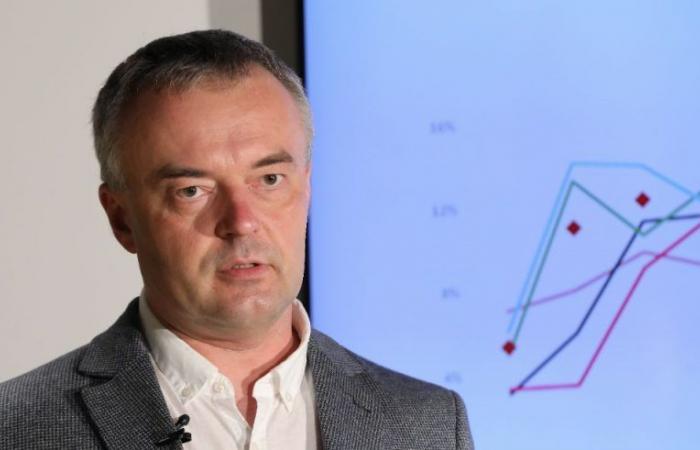
“The economy is slowly, slowly warming up rather than cooling down,” he commented in the TV24 program “Where is the dog buried?” began “Luminor” bank economist Pēteris Strautiņš, answering the question of what is currently happening in the economy in Latvia, and will we have to tighten our belts?
Skabeeva rants: Russian propagandists are outraged by Trump’s actions in connection with Ukraine
Numerology and the magic of numbers: how your phone number affects your destiny and when to change it?
Opinion
Linda Tunte: “I drink, curse, gas politicians and leave work”
Read other posts
“If we talk about the relatively abstract phenomenon GDP [iekšzemes kopproduktu], which for some reason is mentioned all the time, then this year the growth will be higher, at least in real terms, than last year, when it was negative or not at all. Rather, things are gradually moving to the better side. If we are talking about the need to fasten our seat belts, it is absolutely not a threat to most people. This already happened two years ago, when real wages fell. Real GDP grew at that moment, but real wages decreased due to inflation,” explained economist Strautiņš about the processes in the Latvian economy.
The economist emphasized that this year we can expect a “very significant” real wage increase of around 8%. “In other words, as much as the real salary decreased in 2022, it could increase accordingly this year. There was a slight increase last year. And this is because the price level does not actually change this year. I think there will even be several months where there will be deflation on an annual basis, but wages are growing. Wages in monetary terms are growing. To a large extent, it is inertia, and wages are growing especially fast in the public sector, well, where will we really have to slow down, not in the sense of taking something away from someone that has already been given, but it is quite clear that in the next couple of years wage growth will be very small,” Strautiņš commented.
This year, the wage budget in the public sector has increased “by about a fifth” at a time when prices are effectively flat. “Of course, it’s just a coincidence, but in my opinion, that was the increase in real wages in 2007. These were absolutely fantastic numbers. Even now we see an absolutely fantastic number! This does not mean that we are facing 2008 and 2009 – definitely not! But it is absolutely clear that we will have to radically slow down wage growth,” commented Strautiņš, an economist at “Luminor” bank, in the TV24 program “Kur tas suns aprakts?”, answering the question of what is currently happening and what is expected in the Latvian economy.
It has already been announced that Latvia had lower annual inflation in March than the European Union (EU) and Eurozone average, according to the data of the EU statistical office “Eurostat” published on Wednesday, LETA reported on April 17.
Annual inflation in Latvia was 1% in March. Lower inflation than in our country last month was registered in Lithuania (0.4%), Finland (0.6%) and Denmark (0.8%). On the other hand, the highest annual inflation was in Romania (6.7%), Croatia (4.9%), as well as in Estonia and Austria (4.1% in both countries).
In March, consumer prices increased year-on-year in all EU member states. The average annual inflation in the EU was 2.6% in March, while in the Eurozone it was 2.4%. On the other hand, compared to the previous month – February – consumer prices in March increased by 0.7% in the EU, and by 0.8% in the eurozone.
Compared to February, consumer prices in Latvia increased by 1.2% in March, as in Italy. Monthly inflation was in all EU member states, except for Lithuania and Finland, where they decreased by 0.1%, and Denmark, where consumer prices remained unchanged. The highest monthly inflation was recorded in Portugal (+2.3%), Greece (+1.8%) and Spain (+1.4%). Meanwhile, consumer prices in Estonia increased by 0.4%. Eurostat calculates inflation according to the EU’s harmonized index of consumer goods (HICP).
More about the TV24 program “Where is that dog buried?” you can watch the video here:
Themes
Tags: economy slowly warming cooling stream reassuring people danger belttightening
-



